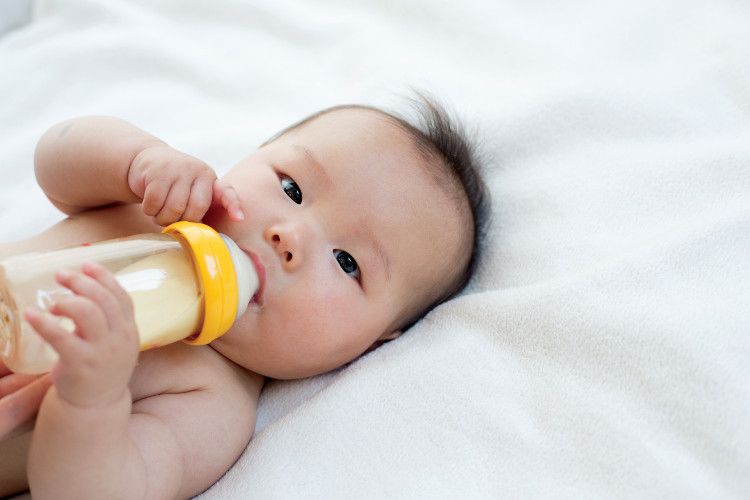Recent study compares the effectiveness of two probiotic products on colicky infants
The study compared AB-Biotics and Kaneka Probiotics’ probiotic formulation of Bifidobacterium longum KABP®-042 and Pediococcus pentosaceus KABP®-041 to Lactobacillus reuteri DSM17938 (LR) from Biogaia.
Photo © stock.adobe.com/ucchie79

A recent study1 published in the European Journal of Pediatrics compared different probiotic formulations marketed for the reduction of colic symptoms. The study compared AB-Biotics and Kaneka Probiotics’ probiotic formulation of Bifidobacterium longum KABP®-042 and Pediococcus pentosaceus KABP®-041(BP+PP) to Lactobacillus reuteri DSM17938 (LR) from Biogaia.
The randomized, multicenter, parallel, single-blind trial was conducted in 112 colicky infants over 21 days. The primary study outcomes of the study were the percentage of responders, defined as a ≥ 50% reduction in crying and fussing time from baseline, as reported by parents in a structured diary, and daily crying and fussing time (minutes/day) on days 7, 14, and 21 after randomization. The results showed that the group taking the BP+PP saw a significantly higher responder rate compared to LR after seven days (61.1% vs. 37.5%) and 14 days (84.6% vs. 59.3%), as well as a significantly lower crying and fussing time after 7, 14, and 21 days.
Jordi Espadaler, director of innovation at AB-Biotics explained to Nutritional Outlook at SupplySide West 2024 that LR is a well-established strain, but that most of its research shows efficacy of breast-fed babies and that research on formula-fed babies taking this strain is scarce. The goal of AB-Biotics was therefore to create a product that showed efficacy regardless of the mode of feeding. Because of the lack of research on formula-fed babies for LR, the company has been unable to accurately compare the different products.
“So, we took a decision some years ago to run a head-to-head clinical study, which is quite standard in pharma where we use them to develop better treatment strategies, but in the dietary supplement that is not common,” said Espadaler. Ultimately, the study’s results showed that BP+PP may be more effective than LR for colicky infants, and “proved that [BP+PP] was effective regardless of the mode of feeding, which was essentially the reason for developing that product from the beginning.”
“This study is the culmination of years of dedicated research and development by our team of experts,” said Sergi Audivert, executive director and co-founder of AB-BIOTICS, in a press release. “Our unprecedented trial comparing the established support for infant colic with our new probiotic solution, not only strengthens the position of our probiotic for colic as the most effective probiotic for colic, but supports our ultimate goal to increase the quality of research around probiotics for infants, ensuring we strive to further alleviate the severity of functional gastrointestinal disorders globally.”
Reference
- Moreno-Villares, J.M.; Andrade-Platas, D.; Soria-Lopez, M.; Colome-Rivero, G.; et al. Comparative efficacy of probiotic mixture Bifidobacterium longum KABP042 plus Pediococcus pentosaceus KABP041 vs. Limosilactobacillus reuteri DSM17938 in the management of infant colic: a randomized clinical trial. European Journal of Pediatrics. 2024, Article ASAP. DOI: 10.1007/s00431-024-05806-x (accessed 2024-10-31).










